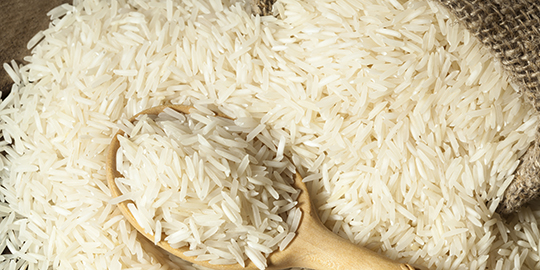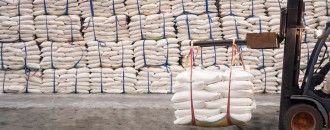
'Basmati rice export price to bounce back by December'
Deepak Kumar | The Dollar Business
Even though the realisation from basmati rice exports is shrinking to a record low, industry experts hope that the prices would bounce back by early December primarily due to an increase in demand from the Middle East and Iran. “Reliasation is not as high as it should be. It is definitely lower than the last year. There has been a slowdown in Iran as far as importing price is concerned. Once new orders start coming in from Iran and Saudi Arabia, basmati exports value will increase. We expect its price to go up by early December,” R Sundaresan, Executive Director of All India Rice Exporters Association (AIREA), told The Dollar Business. Even though the volume of basmati rice exports increased by 16.92% during April-August this fiscal, its exports in value terms declined by 23.15% over the same period last year. During this period, India exported about 16.78 lakh tonnes of basmati rice worth $1.56 billion (over Rs.9.9 thousand crore) as compared to 14.35 lakh tonnes worth 2.03 billion (Rs.12.18 thousand crore) during the corresponding period of 2014-15. “There are a lot of rumors in the market but our data shows that domestic production and exports are more or less same as last year. There has been a little slowdown in basmati rice demand in Iran, but that shortfall has been compensated by an increase of demand in Saudi Arabia. The balance is maintained,” Sundaresan said. Despite a surge in export volume by as much as 2.43 lakh tonnes, its overall relaisation remained less by a significant margin. The drop in realisation was attributed to lower average price of basmati rice, which declined to $929 per tonne during April-August 2015 from $1,415 per tonne a year ago. The slowdown was triggered by several domestic as well as international factors, including weak international demand, poor quality and huge carryover stock. “Iran remains one of our major markets. But exports to Iran have been hit by surplus stocks in Iran and an increase in import duty. The government has recently announced that it will set up a high level committee of agricultural experts to discuss this issue,” another industry expert told The Dollar Business.
October 17, 2015 | 2:48pm IST.






 to success.
to success.